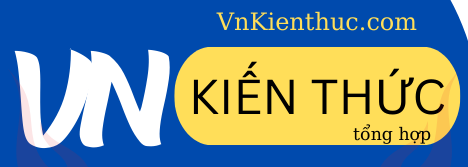CÂU HỎI ĐUÔI TIẾNG ANH - CÂU HỎI ĐUÔI TRONG TIẾNG ANH - BÀI TẬP CÂU HỎI ĐUÔI TIẾNG ANH - NGỮ PHÁP TIẾNG ANH CÂU HỎI ĐUÔI - CÂU HỎI LÁY ĐUÔI TRONG TIẾNG ANH - CÂU HỎI CÓ ĐUÔI TRONG TIẾNG ANH
II.Tag-questions
* Nguyên tắc chung khi lập câu hỏi đuôi:
- Nếu câu nói trước dấu phẩy là câu khẳng định, câu hỏi đuôi phải ở thể phủ định.
- Nếu câu nói trước dấu phẩy là câu phủ định, câu hỏi đuôi phải ở thể khẳng định
* Cấu tạo của câu hỏi đuôi:
- Câu hỏi đuôi gồm một trợ động từ tương ứng với thì được dùng trong câu nói trước dấu phầy, có NOT hoặc không có NOT và một đại từ nhân xưng tương ứng với chủ ngữ của câu nói trước dấu phẩy.
* Thí dụ:
- YOU ARE AFRAID, AREN'T YOU? (Anh đang sợ, đúng không?)
- YOU DIDN'T DO YOUR HOMEWORK, DID YOU? (Bạn đã không làm bài tập nhà, đúng không?)
* Cách thành lập câu hỏi đuôi cho các tất cả các thì ta đã học:
1. Hiện tại đơn với TO BE:
- HE IS HANDSOME, ISN'T HE? = Anh ấy đẹp trai, đúng không?
- YOU ARE WORRIED, AREN'T YOU? = Bạn đang lo lắng, phải không?
- Đặc biệt với I AM..., câu hỏi đuôi phải là AREN'T I:
+ I AM RIGHT, AREN'T I?
- Với I AM NOT, câu hỏi đuôi sẽ là AM I như quy tắc.
+ I AM NOT GUILTY, AM I?
2. Hiện tại đơn động từ thường: mượn trợ động từ DO hoặc DOES tùy theo chủ ngữ
- THEY LIKE ME, DON'T THEY?
- SHE LOVES YOU, DOESN'T SHE?
3. Thì quá khứ đơn với động từ thường: mượn trợ động từ DID, quá khứđơn với TO BE: WAS hoặc WERE:
- YOU LIED TO ME, DIDN'T YOU?
- HE DIDN'T COME HERE, DID HE?
- HE WAS FRIENDLY, WASN'T HE?
4. Thì hiện tại hoàn thành hoặc hiện tại hoàn thành tiếp diễn: mượn trợ động từ HAVE hoặc HAS
- THEY HAVE LEFT, HAVEN'T THEY?
- THE RAIN HAS STOPPED, HASN'T IT?
5. Thì quá khứ hoàn thành hoặc quá khứ hoàn thành tiếp diễn: mượn trợ động từ HAD:
- HE HADN'T MET YOU BEFORE, HAD HE?
6. Thì tương lai đơn:
- IT WILL RAIN, WON'T IT?
- YOUR GIRLFRIEND WILL COME TO THE PARTY, WON'T SHE?
* Những trường hợp đặc biệt cần lưu ý:
** USED TO: từng (diễn tả thói quen, hành động thường lập đi lập lại trong quá khứ)
- Trường hợp này, ta cứ việc xem USED TO là một động từ chia ở thì quá khứ. Do đó, câu hỏi đuôi tương ứng chỉ cần mượn trợ động từ DID
- Thí dụ:
+ SHE USED TO LIVE HERE, DIDN'T SHE?
** HAD BETTER:
- HAD BETTER thường được viết ngắn gọn thành 'D BETTER, nên dễ khiến ta lúng túng khi phải lập câu hỏi đuôi tương ứng. Khi thấy 'D BETTER, chỉ cần mượn trợ động từ HAD để lập câu hỏi đuôi.
- Thí dụ:
+ HE'D BETTER STAY, HADN'T HE?
** WOULD RATHER:
- WOULD RATHER thường được viết gọn là 'D RATHER nên cũng dễ gây lúng túng cho bạn. Chỉ cần mượn trợ động từ WOULD cho trường hợp này để lập câu hỏi đuôi.
- Thí dụ:
+ YOU'D RATHER GO, WOULDN'T YOU?
* Xem thêm
- Củng cố kiến thức về câu hỏi đuôi (1)
- Củng cố kiến thức về câu hỏi đuôi (2)
- Câu hỏi đuôi trong tiếng anh
- Câu hỏi đuôi (tag-questions).
- Câu hỏi đuôi
Sửa lần cuối bởi điều hành viên:
